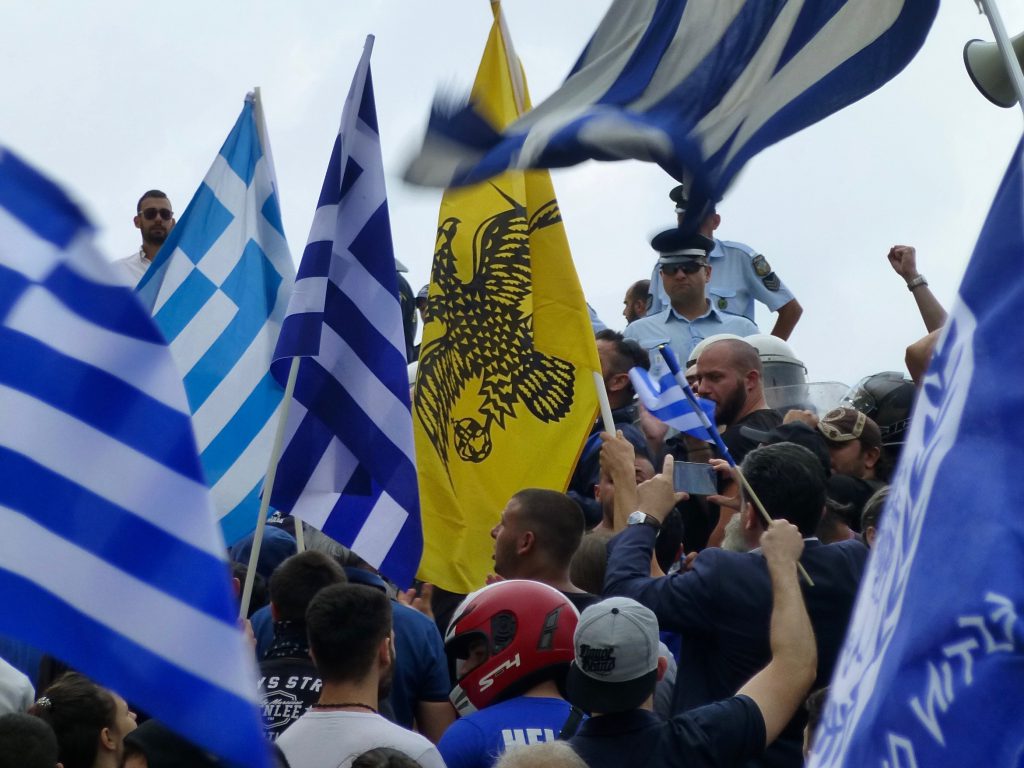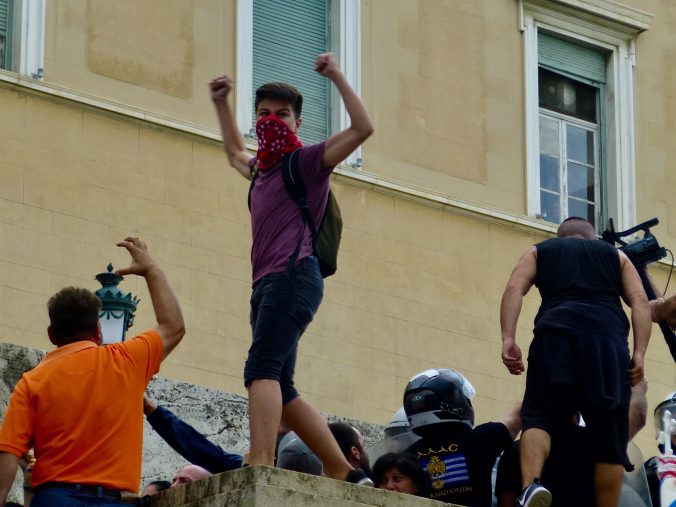By Maia Hamin
ATHENS, Greece — Syntagma Square was jubilant Saturday afternoon. Music blared, children waved flags, vendors toasted nuts. Stands sold scarves, hats and even kid’s t-shirts bearing slogans like “Macedonia is Greek.”
For all its cheer, the gathering was not a block party but a demonstration against a proposed agreement between the governments of Greece and Macedonia. After a 27-year dispute, the nation north of Greece agreed to change its name to the “Republic of Northern Macedonia.” In return, Greece agreed to stop blocking Macedonia’s membership in NATO.
The agreement set off waves of resistance. Minority parties in Greece withdrew support from the ruling party, complaining that by retaining the word Macedonia in its name, Greece’s neighbor hinted at territorial claims on the Greek province of the same name.
Most demonstrators refused to use either the old name or the new, instead referring to the country by the name of its capital, Skopje.
Passion among the demonstrators rose as the afternoon wore on. Numbers swelled and protestors spilled into surrounding streets. Some argued with a police officer who struggled to lead a trapped tour bus through the crowd.

One man banged a drum, another hoisted aloft a giant image of Christ. Leaders chanted through megaphones and a man in a pink suit urged the throng to climb steps to the Parliament and press against the police riot shields.
The crowd hissed and booed when parliamentary officials appeared, and occasionally flung empty water bottles into the ranks of police blocking the stairs. One officer, safely behind the line, tested his tear gas canister, and demonstrators nearby covered their faces with bandanas and balaclavas.
Many protestors cited national pride or the importance of Greek heritage as motivating their presence. Thanos Papandreou stood in the center of Amalia Avenue and waved a large flag depicting the 16-pointed golden star of Alexander the Great superimposed on the Greek national flag.
“The ancient Macedonians were Greek, Alexander was Greek. And in Skopje they are Slavs,” Papandreou said.
He argued that renaming accord was struck because the United States wants another ally in NATO against Russia, complaining that, what the U.S. asks, the Greek government provides.
“When the bulls are fighting,” Papandreou said, making a horn symbol with his fingers, “the frogs get squished.” Miming crushing something underfoot, he adds, “Here, we are the frogs.”
